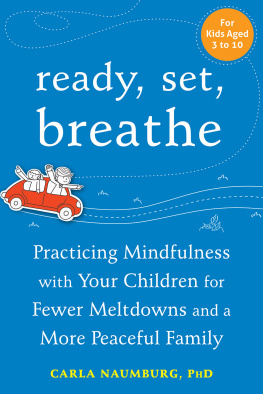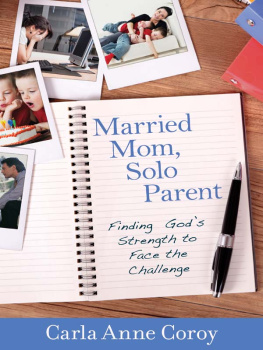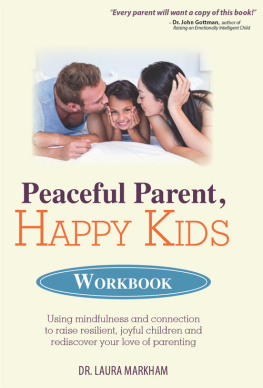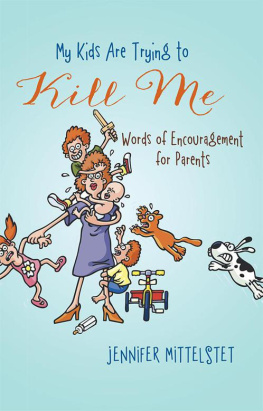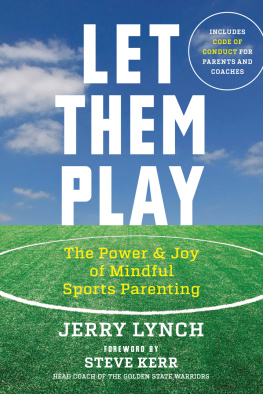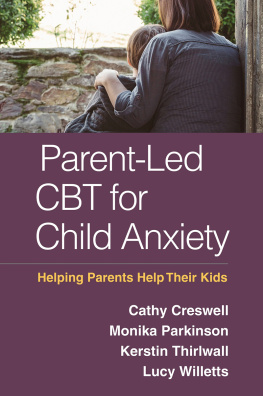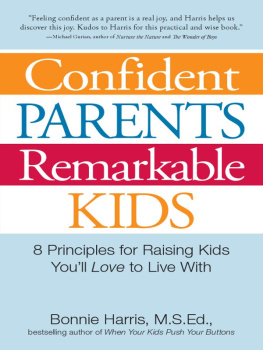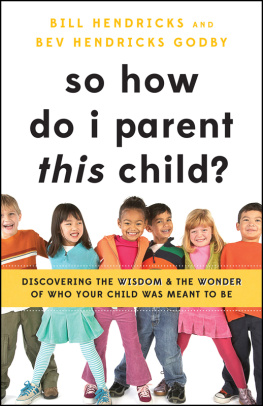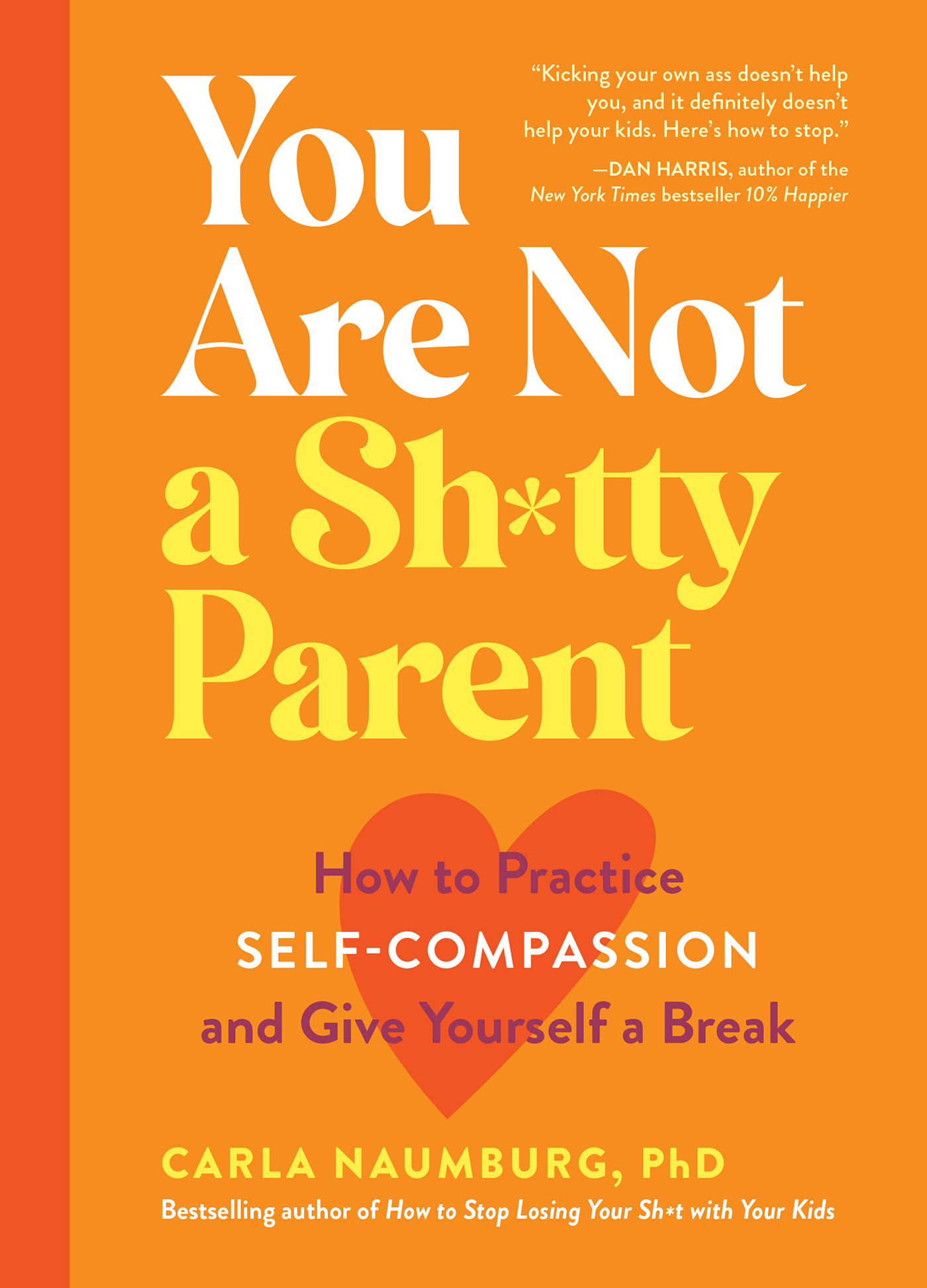
You Are Not a Sh*tty Parent
How to Practice SELF-COMPASSION and Give Yourself a Break
CARLA NAUMBURG, PhD
WORKMAN PUBLISHING NEW YORK
For Daniela, youre my favorite. I love you.
Contents
introduction
Why I Wrote a Whole Damn Book About Self-Compassion
Not long after the world shut down in the spring of 2020, I started getting phone calls from journalists and podcasters who wanted to interview me about my book, How to Stop Losing Your Sh*t with Your Kids. After weeks, and then months, of trying to balance homeschooling with working from home with the anxiety of living through a pandemic with the stress of not even having two minutes to pee in privacy, parents were absolutely losing their shit with their kids.
Of course they were. We all were.
And so I got on those calls and I talked about parental shit loss and offered suggestions as often and as helpfully as I could. And almost every interview ended with the same question: If you could leave parents with just one idea or practice or piece of advice, what would it be?
That was often my favorite part of the conversation because it finally gave me a chance to dive into the topic I really wanted to talk about: self-compassion. Interviewers rarely asked about compassion because, well, its kind of weird. It seems all loosey- goosey and touchy-feely and when the shit is hitting the fan and it feels like the entire world is falling apart, we parents dont need some feel-good baloney. We need answers. We need strategies and solutions.
Or so we think.
But heres the thing that most folks dont realize: Self-compassion is the strategy that will help us find the solution, or at least the best way through the storm.
Sometimes, if were lucky, we can find a fix to whatevers going on. If thats the case, jump on it and do a little happy dance because those moments dont come along as often as weve been led to believe. More often than not, though, much of what were struggling with either a) isnt a you or your family problem at all; its a communal or societal issue that you cant fix on your own, no matter how hard you try, or b) isnt fixable at all, on any level, in which case all we can do is muddle through as best we can.
I knew all of this, but I also knew that a thirty-minute parenting podcast wasnt the time or place to get on my tiny little soapbox and start ranting about the lack of childcare and health care and mental health treatment and support that every single one of us needseven when its not a freaking pandemic. Instead, I talked about why we lose it and the importance of sleep and singletasking and moving our bodies in helping us stay calm. While Im sure some of this advice was useful, I also worried that every time I suggested something parents should be doing differently, I was implying that if parents were struggling, it was because they were doing something wrong.
And that couldnt be further from the truth.
Im not saying that parents couldnt be doing better; we all could, because thats the deal with being a human parent raising human kids. Im just saying that in that moment, telling parents to try to take care of themselves so they could be calmer and more flexible in the face of COVID chaos was kind of like blaming parents for a gaping wound they didnt cause and then getting all hung up on which shape Band-Aid they should be using and how often they should be changing it. Certainly, when Band-Aids are all youve got, of course youre going to focus on them and thats fine. But we sure as shit shouldnt be blaming ourselves when they dont solve the fundamental problem.
And thats what I saw parents doing again and again: blaming themselves for not fixing the unfixable problems of life and parenting. For not staying calm at every moment. For not doing a better job managing their childrens online learning. For leaving their jobs and stalling out their careers in order to care for the kids or for not leaving their jobs and not having enough time or energy for their families. For not making their kids get more exercise or letting them have too much screen time. For eating too much, drinking too much, buying too much crap online, and being just too damn fried and overwhelmed to even get through the day, much less parent, the way they wanted to.
And these arent just pandemic problems; these are challenges parents have faced since the beginning of time. The pandemic was just another endless, relentless straw that broke the already overburdened camels back.
Which is why I kept talking about self-compassion. There was no way I was ending the conversation with yet another piece of should advice. I wanted to give listeners the antidote to the isolation, judgment, and self-contempt that I knew far too many parents had been experiencing for years and were now buried in. And so I seized my moment and started spreading the news about connection and curiosity and kindness as often as I could to as many people as I could. I like to think it helped just a little.
Even if it did, things still got worse for parents. As the world started opening up again in the fall of 2021, we began to get data confirming what we already knew: that kids had suffered academically, mentally, emotionally, physically, and socially during the yearlong lockdown. Even though parents had been forced to choose between Shitty and Even Shittier, they blamed themselves for their childrens struggles. They compared their own unwinnable situations to those of parents with more money, more resources, flexible jobs, better school systems, and access to childcare and health care and wondered why they didnt measure up.
Feeling like shitty parents isnt just another side effect of this damn pandemic (although its a bad one); somehow it has become the theme song of our generation. For a variety of reasons well discuss, we parents have been holding ourselves to impossible standards, blaming ourselves for situations beyond our control, and treating ourselves like shit when we screw up.
Were suffering from Shitty Parent Syndrome, which I define as the thought, belief, or perception that you are a shitty parent, when, in fact, youre not. Shitty Parent Syndrome looks a little different for everyone, but generally speaking, it consists of three different reactions we tend to have when things fall apart or we feel like were failing: isolation, judgment, and contempt.
We assume were the only ones who have ever suffered and screwed up the way were suffering and screwing up, we judge the shit out of ourselves for it, and we treat ourselves as if we dont deserve even the most basic approval or respect.
And heres the bitch of it all: Believing youre a shitty parent and treating yourself that way doesnt make anything better.
No one functions well when they feel completely worthless. I know from experience.
Where did Shitty Parent Syndrome come from? Well dive into this in Chapter 5, but for now what you need to know is that it has nothing to do with the quality of your parenting. We canand willepically screw up, and that doesnt mean were shitty parents. It just means were humans doing the hardest job any of us will ever do. Our tendencies toward isolation, judgment, and self-contempt arise from a toxic combination of too much advice, too little support, and the inevitable comparisons that arise in the face of social media and (un)reality television. What I hope you can keep in mind is that no matter how specific and personal your shitty parent thoughts and beliefs may seem, they have very little to do with the quality of your parenting and a whole lot to do with how weve all been trained to judge the crap out of ourselves.
Next page

